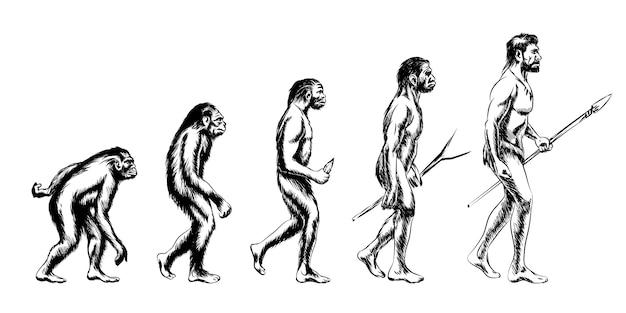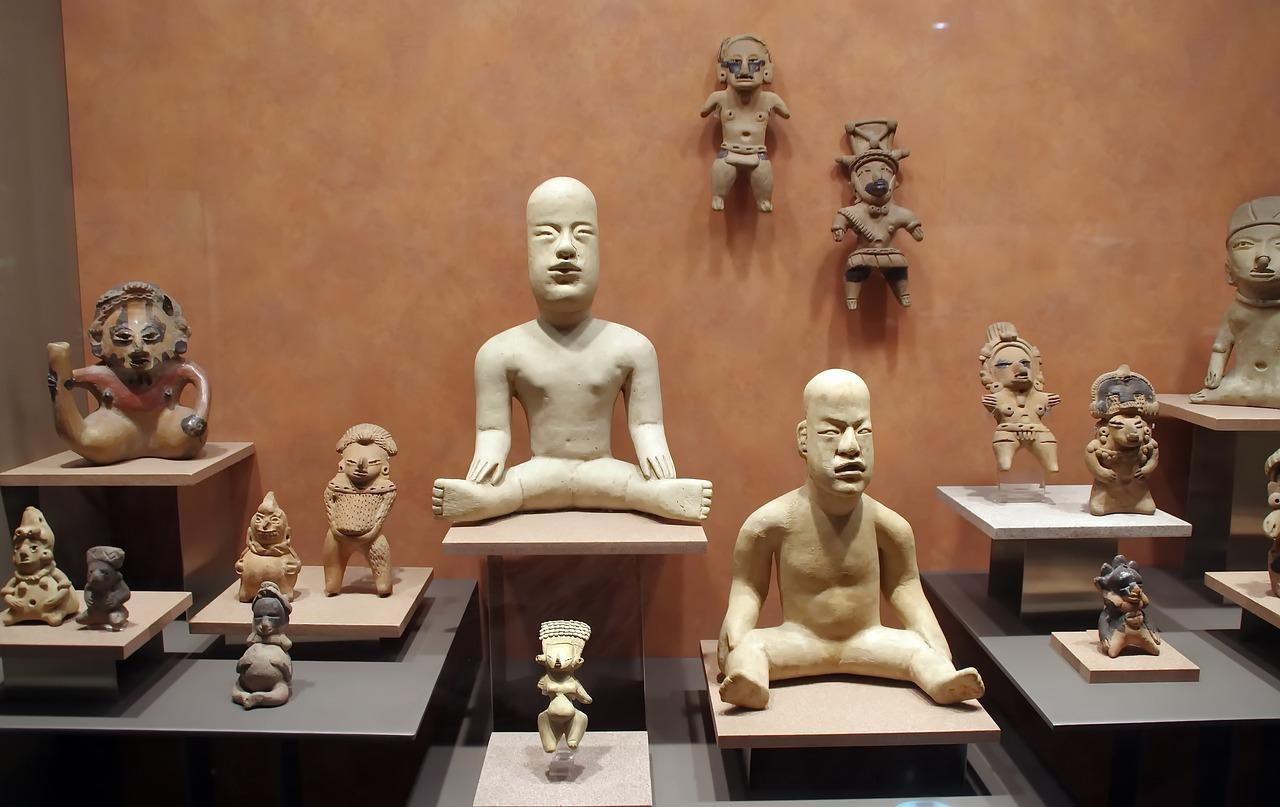Cultural anthropology is an intriguing field that delves into the intricacies of human cultures and societies. It explores how different groups of people make sense of the world, shape their behaviors, and navigate their environments. With its focus on examining the beliefs, practices, customs, and values of diverse communities, cultural anthropology provides us with a unique lens through which we can better comprehend the complexity of human existence.
In this blog post, we will dive into the various facets of cultural anthropology and explore why it is such a critical discipline. We will uncover its main focus, examine its role in development, and uncover the ways in which culture influences our behavior, emotions, moral development, and personality. By the end, you’ll have a deeper understanding of why cultural anthropology matters and the valuable insights it offers in comprehending both ourselves and the world around us.
So, let’s embark on this fascinating journey of discovery and unravel the importance of cultural anthropology in understanding our shared humanity. Are you ready? Let’s begin!

Why Cultural Anthropology Matters
Cultural anthropology may not be the most glamorous field of study, but it certainly holds a significant place in our society. This intriguing discipline helps us understand the vast complexities of human cultures, providing valuable insights into our own behaviors, beliefs, and interactions. In this section, we will delve into why cultural anthropology is so important and how it enriches our lives in unexpected ways.
Understanding Cultural Diversity
Cultural anthropology allows us to explore and appreciate the incredible diversity that exists among human societies. By studying different cultures and their practices, we gain a broader perspective on the world and recognize the beauty in our differences. Whether it’s examining unique rituals, exploring distinct value systems, or unraveling the intricacies of social structures, cultural anthropology celebrates the rich tapestry of human existence.
Challenging Ethnocentrism
Ethnocentrism, the belief that one’s own culture is superior to others, can hinder social progress and create division. Cultural anthropology challenges this narrow mindset by fostering cultural relativism, the idea that all cultures are equally valid and should be understood within their own context. Through this lens, anthropology encourages us to question our assumptions, challenge our biases, and cultivate empathy for different ways of life.
Preserving Cultural Heritage
Anthropologists play a vital role in preserving and safeguarding cultural heritage. By documenting traditional knowledge, practices, and languages, they ensure that these invaluable aspects of human civilization are not lost to the sands of time. From documenting endangered languages on the brink of extinction to working with indigenous communities to protect their ancestral lands, cultural anthropology serves as a powerful force for cultural preservation.
Informing Policy and Development
Cultural anthropology provides essential insights for policymakers, helping them design more informed and effective strategies for development, conservation, and social change. By understanding the cultural norms, values, and aspirations of different communities, policymakers can create programs that respect local traditions and promote sustainable development. Without this understanding, policies run the risk of being misguided, ineffective, or even detrimental to the very communities they aim to support.
Uncovering Human History
Anthropologists don’t just study living cultures; they also delve deep into our past. Through archaeological excavations, researchers uncover ancient civilizations, trace the evolution of human societies, and shed light on our collective history. By piecing together the puzzle of human existence, cultural anthropology unravels the mysteries of our past, connecting us to our ancestors and providing insights into our present.
Inspiring Tolerance and Understanding
In an increasingly interconnected world, cultural anthropology offers a pathway to tolerance and understanding. By studying different cultures and challenging our preconceived notions, we become more open-minded and accepting. Cultural anthropology enables us to transcend stereotypes and recognize the shared humanity that unites us all. Through this discipline, we learn to celebrate diversity and create a more inclusive and harmonious world.
So, next time you hear someone dismiss cultural anthropology as just the study of “other people’s cultures,” remind them of its vital importance. This fascinating field broadens our horizons, challenges our assumptions, and unearths the hidden intricacies of the human experience. Whether you’re a student, a policy-maker, or simply someone curious about the world, cultural anthropology is a gateway to a deeper understanding of ourselves and the rich tapestry of human existence.

FAQ: Why is Cultural Anthropology Important?
Welcome to our FAQ-style guide on the importance of cultural anthropology. In this article, we’ll address common questions and shed light on the significance of this fascinating field of study. From exploring the impact of culture on behavior and development to understanding the unique aspects of cultural anthropology, we’ve got you covered!
What is the Main Focus of Cultural Anthropology
Cultural anthropology primarily focuses on studying human cultures and societies across different times and locations. This field seeks to understand the complexities of human behavior, social structures, beliefs, and practices. It explores the ways in which cultures shape and influence people’s lives.
What is the Role of Anthropology in Development
Anthropology plays a crucial role in development by providing valuable insights into the social, cultural, and economic dynamics of communities. It helps identify the specific needs and challenges faced by different groups of people. By understanding the cultural context, development initiatives can be better tailored to effectively address these issues and promote sustainable progress.
How Does Culture Affect Behavior
Culture has a profound impact on behavior as it shapes our values, norms, and beliefs. Different societies have distinct cultural practices that influence how individuals behave and interact. For instance, in some cultures, punctuality is highly valued, whereas in others, a more relaxed approach is accepted. Understanding these cultural nuances helps prevent misunderstandings and encourages cross-cultural understanding.
What are the 3 Types of Anthropology
Anthropology can be broadly categorized into three main types: cultural anthropology, physical anthropology, and archaeology. While cultural anthropology focuses on the study of human cultures and societies, physical anthropology examines human evolution, biological diversity, and primatology. Archaeology, on the other hand, deals with the excavation and interpretation of artifacts and structures to uncover insights about past civilizations.
How is Culture Developed
Culture is developed through a combination of various factors, including historical events, geographical conditions, social interactions, and the transmission of knowledge from one generation to another. It encompasses language, customs, traditions, art, and other aspects that characterize a particular society. As societies evolve and interact, cultures can also change and adapt over time.
How Does Culture Influence Emotions
Culture significantly influences emotions as it shapes our perception and expression of feelings. Different cultural norms and values can determine what emotions are considered appropriate or inappropriate in specific contexts. For example, some cultures may encourage more outward displays of emotion, while others may prioritize emotional restraint or suppression. This cultural influence on emotions highlights the interconnectedness between culture and human psychology.
What is the Meaning of Cultural Anthropology
Cultural anthropology is an academic discipline that seeks to understand and interpret the diversity and complexity of human cultures. By studying cultural patterns, beliefs, social structures, and practices, cultural anthropologists aim to gain insights into how societies function and how individuals within these societies live and interact.
How Does Anthropology View Self
Anthropology views the concept of self as something that is influenced by both cultural and individual factors. While individuals carry their own unique experiences and perspectives, cultural values and social norms also impact how individuals perceive themselves and their roles within society. Anthropology recognizes that the notion of self is shaped by the interplay between personal identity and cultural context.
How Does Culture Influence Moral Development
Culture plays a fundamental role in shaping moral development by providing individuals with shared ethical values and norms. These cultural frameworks guide individuals’ moral decision-making processes and help establish what is considered right or wrong within a society. Cultural anthropology allows us to explore the diverse range of moral systems across different cultures and gain a deeper understanding of the factors that influence ethical behavior.
How Does Culture Influence Personality
Culture significantly influences the development of personality traits and behaviors. Different cultures have varying expectations and standards regarding individual traits such as assertiveness, collectivism, independence, and conformity. These cultural expectations shape individuals’ self-perception and behavior, contributing to the diversity of personalities observed across different societies.
How Does Culture Influence Your Development
Culture plays a vital role in shaping an individual’s development from infancy to adulthood. It provides the framework through which individuals learn language, acquire knowledge, and develop social skills. Cultural beliefs, values, and practices are transmitted through generations, influencing individuals’ cognitive, emotional, and social growth. Cultural anthropology helps us understand the profound impact that culture has on our overall development as human beings.
How Does Anthropology Contribute to Society
Anthropology contributes to society in numerous ways. It helps us appreciate and respect cultural diversity, fostering intercultural understanding and promoting tolerance. Anthropological research provides valuable insights for policymakers, aid organizations, and development initiatives to better address societal challenges. Furthermore, understanding different cultural perspectives enhances our ability to communicate and collaborate on a global scale.
Does Culture Affect Morality
Yes, culture significantly affects morality. Cultures have distinct moral codes and values that define what is considered morally acceptable or unacceptable within a society. What may be deemed virtuous in one culture could be perceived differently in another. Cultural anthropology explores the vast array of moral systems across cultures, highlighting the influence of culture on our understanding of right and wrong.
What Makes Cultural Anthropology Unique
Cultural anthropology stands out due to its holistic approach, encompassing various aspects of human life and society. It examines the interconnectedness between different cultural elements, such as language, rituals, social structures, and belief systems. By considering the broader cultural context, cultural anthropologists gain a comprehensive understanding of how societies function and how human behavior is shaped.
What’s the Difference Between Physical and Cultural Anthropology
While cultural anthropology focuses on the study of human cultures and societies, physical anthropology primarily concentrates on human biology and evolution. Physical anthropology explores topics such as human genetics, primatology, and skeletal analysis to understand the biological aspects of our species. In contrast, cultural anthropology delves into the social, behavioral, and cultural dimensions of human societies.
We hope this FAQ-style guide has shed light on the importance of cultural anthropology and answered some of your burning questions. Cultural anthropology offers invaluable insights into human behavior, development, and the profound influences that culture has on every aspect of our lives. By understanding the intricacies of different cultures, we can foster mutual respect, empathy, and appreciation for the diverse societies that make up our global community.
